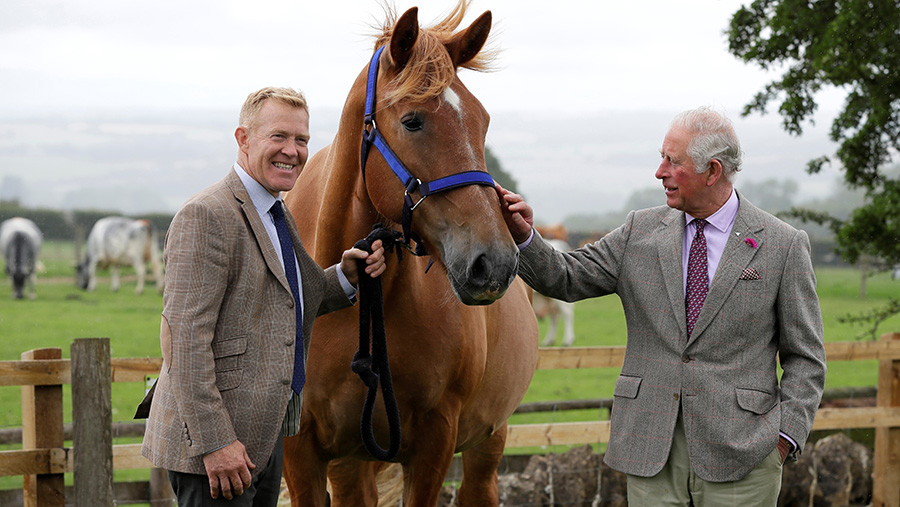Prince of Wales warns of cheap food threat to small family farms
 © Pool New/Reuters
© Pool New/Reuters Super-efficient intensive farming systems and the pursuit of cheap food will trigger the collapse of small family farms, the Prince of Wales has warned.
In an interview with BBC Radio 4’s Today programme, Prince Charles said allowing small, independent farms to go out of business would “break the backbone of Britain’s rural communities”.
The prince said about 35 years ago he set out to show how farming can produce nutritious food sustainably without destroying soils.
See also: HRH The Prince of Wales on FW Award and farming’s future
But over the years, he has watched with increasing concern as many of the country’s “precious landscapes have been slowly diminished in the name of efficiency”.
The damage to the natural systems the nation depends upon must be reversed, he said, adding: “We must put nature back at the heart of the equation”.
He says the way food is produced has a “direct impact on the Earth’s capacity to sustain us, which has a direct impact on human health and economic prosperity”.
‘Hidden costs’
But our current approach will lead to a “dead end” if we fail to take into account the “hidden costs” of super-efficient farming, such as damage to soils and major watercourses, emissions that add to global warming and the social and economic cost to local communities.
“The fact that these costs are hidden encourages us to ignore them,” said Prince Charles.
If the UK wants to produce healthy and sustainable food, it must support a diversity of farms that help them make the “profound and rapid change the crisis demands”.
He said although not a great deal had changed in the past 35 years, he was “increasingly confident” the UK can achieve the transition, particularly when he meets the next generation of farmers.
Recalling his recent opening of FarmED, a new centre for farming and food education in the Cotswolds, the prince said as he walked the fields “it became clear that there are many farmers who have now identified how we can produce healthy food in a viable way”.
Carbon capture
Measures to achieve this include cattle raised on permanent pasture, the importance of building soil fertility and natural flood management schemes, which the prince said were also of “vital importance” to capture carbon.
“If we regenerate degraded soils around the world, we could capture as much as 70% of the world’s carbon emissions,” said the prince. “So, you see, farming can play a big part in protecting the planet”.
Meanwhile, BBC Countryfile presenter and Cotswolds farmer Adam Henson said almond milk and avocados are “disastrous for the environment” and vegans who buy them instead of British meat and dairy products should consider the impact of their diets.
In an interview with the Radio Times, Mr Henson said: “If you’re drinking soya milk, it might have come from South America and caused deforestation, the destruction of species, and the displacement of indigenous people.
“You’re better off drinking milk from a local dairy farm that’s been bottled there and delivered to your doorstep, where cows are wonderfully looked after and the family contribute to the local society and economy.”
Dimbleby report
The comments come ahead of the publication of the second instalment of Henry Dimbleby’s National Food Strategy.
How the country can produce enough food without damaging the environment is one of the challenges that will be addressed by restaurateur Mr Dimbleby when he publishes his report for the government on Thursday 15 July.
It is understood that the independent review will include recommendations for the government to reduce the public’s meat and dairy consumption and seek out dietary alternatives to help meet climate change targets.
Ministers will respond to the paper within six months, but they have stressed that none of the recommendations “will be set in stone”.
